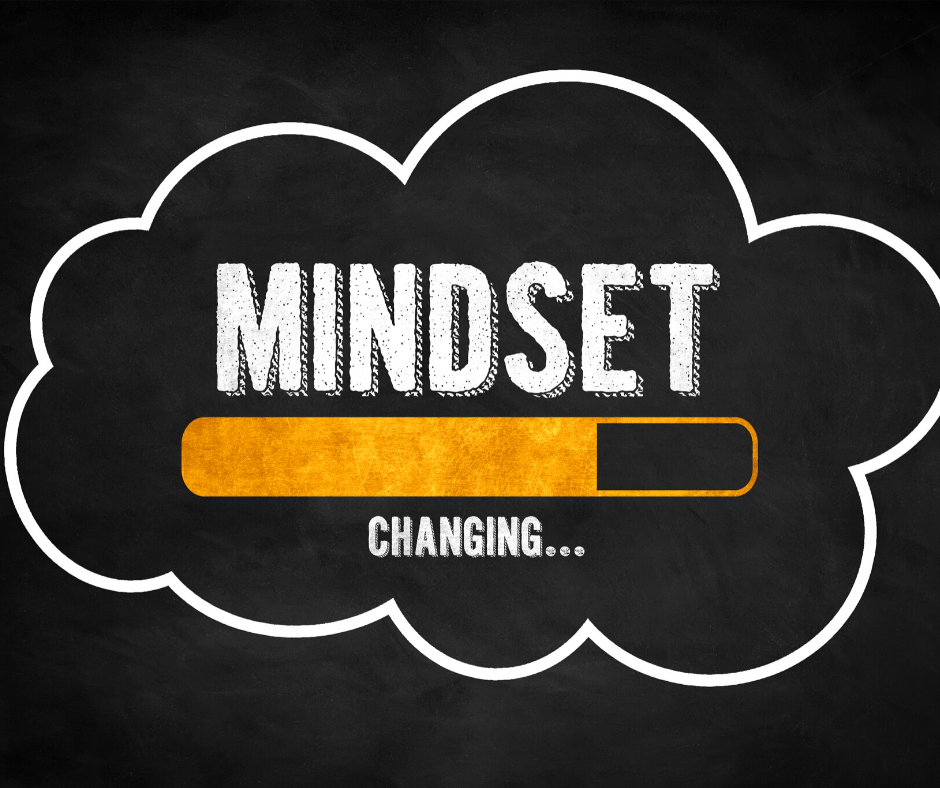
The high cost of a crappy, closed mindset
This article is about the difference between a closed mindset, entitled or deserving without merit, and an open, champion mindset. Mindset is everything.
By the end of this article, I’d love for you to see the power of an open, willing, coachable, mindset that never stops seeking to improve and make a difference in the world around you.
The Tennis Kid
When I was 14 years young, I lost the New Hampshire state tournament tennis final to a kid I know I could have beaten. It crushed my soul. Tennis was my life back then and for many years.
I lost a lot of tennis matches growing up. Same with baseball games and fistfights. What I didn’t know as a younger man was the high cost of a crappy, closed mindset.

Like you, I was born and conditioned into the mind and life I know today. My desire to improve keeps growing as I age. I grew up in the 1960s and 1970s in the home of very loving, entrepreneurial parents who did their very best to teach us the ways of the world. As the firstborn son, I quickly learned it would be my job to question everything and challenge everyone who kept me from getting my way.
Born With Talent
I believe we’re all born with a gift inside of us in the form of talent that can be developed based on our natural interests. My budding abilities were a quick wit and athletics. I had loving parents who raised me, my sister, and brother in the upper-middle-class ranks of a small New England town. My parents worked hard. They owned and operated a hotel, restaurant, and later, a real estate business. My mother stayed at home, raising the three kids until she went to work with my dad in the real estate after the hotel failed due to the oil embargo of 1973. Life was good for me as a kid.
That happy picture you just saw was the last “family vacation” during the Spring. Dad’s hotel business was failing at the time. But what did I know? Look at my crappy attitude in the picture. You can see the contempt, and if not, maybe through my energy hitting the keys, you can feel it seeping from deep inside. I didn’t know why because my family gave me every gift a boy could imagine. Back then, life was all about me.
Day Dreams
My dream was to become a professional tennis player. I had a massive raw talent that came quickly in most sports, including baseball, tennis, ski racing, and soccer. I competed at the state and regional level of the United States Tennis Association as a junior. I played Varsity tennis as a kid in middle school, high school, then in college. My identity was deeply seeded in being a kind of prodigy athletic kid, even though we didn’t call it that back then.
To this day, I can dream, see, feel, and take on a new sport challenge and win.
I’m not bragging about myself, as you’ll see in a minute. I’m making the point that any person like me born with any raw or “prodigal-like” talents can end up with a crappy closed mindset that becomes toxic in more ways than one later in life.
But pretty much anyone with raw athletic ability can practice the “inner game” stuff I’ve learned to practice and apply to all of my amateur athletic pursuits. Your self-identity, who you believe you are, is what matters. If you think you stink at any sport, like when I meet and coach new players in any of my games, and they start talking crap to themselves, and I can hear it, I call them out on their choice of words. Your mindset, your thinking, your speech, actions, and deeds tell the world who you are.
Mindset Is Formed Growing Up
My raw athletic talents made me the kid who the bigger kids and grown-ups would pick to play tennis and other sports. I experienced this from a very young age because I could learn to play pretty much any game well.
Going to school was different. I never liked school even though I was insatiably curious. School felt like a prison or institution that was completely unnatural to my way of learning; experiencing, doing, playing, dreaming, drawing outside the lines, and never, ever feeling good sitting in the school box. There’s a part of me that continues to suck at belonging. I believe this formed in my mind during the early school years, where I was force information that was only part of the big picture. As a result of my mindset about the school, I skated, did as little as possible, and got C’s, which were just good enough to keep my parents from ruining my plan for a professional athlete’s life.
I idolized John McEnroe or Jimmy Connors. The rebel in me loved the mindset they exhibited. They helped me justify my crappy behavior even though my parents scolded me often. I don’t believe the consequences of my bad behavior were harsh enough. I got away with things that would be impossible today without going to juvenile court and other dark places. My conservative mother and father detested these men for their antics on the court. I loved them both.
To my parents and theirs, tennis was a sport for ladies and gentlemen. We had to wear tennis whites and be very proper. Talk about grinding this kid’s inner demons deeper into repressive corners of my shadow. That crap would emerge much later in my life to humble me through a new self-imposed entrepreneurial disaster that crushed me worse than missing the mark in any tennis championship due to my crappy, toxic mindset formed as a kid.
Both of these characters seemed superhuman to me. They nuked all the traditions of tennis with bleeped out, television f-bombs, temper tantrums, and championship wins that electrified the stadiums. We had three television networks back then. I know, shocking. One television network would win the rights each year to broadcast the major tennis championships; the U.S. Open, Wimbleton, The French Open, and The Australian Open. I was glued to the screens for all of them if I wasn’t practicing myself or tearing up another garage door or wall while banging 10,000 practice balls off of it.
Big Fish, Little Pond — Not Good
It was a huge ego boost to be a little, big fish in a tiny pond tucked away in the corner of a New Hampshire during the way too long winters. But I could not know then what I would learn much later about the high cost of the entitled, prodigy kind of mindset I had taken on as a kid. The truth was, I was insecure as heck. But being a great athlete helped me overcompensate.
The worst part of my closed, entitled mindset was even though it was seemingly apparent to professionals, what I was not learning early enough was the way to develop a professional, championship work ethic. Instead, my raw talent enabled me to get away with being a slacker who could skate through life and get away with too many shenanigans.
The closed mindset cost me an entirely new level of ego when I arrived at a small, private university in Ohio called Ohio Wesleyan University. Due to my stellar “C-student” academic performance, and more than one Varsity letters pinned to the high school coat, an angel in the admissions somehow decided to let me in.
Naturally, I expected to walk right onto the college team. I’m sure my coaches and parents were doing their best to warn me about the consequences of my mindset, but nobody knew then what they didn’t know. What happened was I didn’t make the tennis team my freshman year because I was “too cocky.” The experience crushed more than ever, and it was one of the best lessons I ever had because it compelled me to change my mindset and habits.
It didn’t take long for me to figure out I had to change my ways and work harder if I wanted to make the tennis team the next year. Getting cut from the first team ever was a huge wake-up call. It was the first time I learned the cost of a crappy mindset, but it would take me decades to see what was happening.
I met Timothy B. Monahan in my sophomore year, 1980. He told me I was too skinny and taught me how to lift weights. He taught me the self-confidence I did not have. (I love you, brother!) He pushed me to work harder and shift my mindset. I got bigger, stronger, and kept working harder by having new role models and burning desire to show the guys I could make it back.
The next year I made the Varsity team. I worked my butt off that year and won Most Improved Player. (I’m crying now remembering.) Thanks to my teammates for making me accountable! You were right, boys; I had a crappy and deserving attitude due to talent.
Life, Progress, Mindset Shifts
I had lots of mindset setbacks after that. But I kept learning, training, lifting, running, cycling, and chasing Janice between keg parties. Bobby Dubois and I went on the win the Ohio Athletic Conference title our senior year. My mindset shift earned me a teammate who helped us win a big championship.
Why is mindset vital as it relates to my story? Because I grew up with a mindset with an attitude of “Oh, Cliffy, you are such a gifted athlete. You deserved to win that tournament. Don’t cry. Don’t smash your racket. We will buy you a new one. You will do better next time.” (I’m not knocking my parents because they did their very best as amazing parents. That is my truth.)
I needed to hear back then, “NO, you won’t do better next time until you fix the s#$t mindset with, “Kid, you don’t deserve anything. You deserve to work harder and train smarter than everyone else if you want to be a champion. You have to listen to your coach and teammates. It’s not all about you being a star. We don’t need stars. We need players who play for the team and school honor. We need people who work hard and take constructive criticism well. If we tell you your forehand needs work, work that forehand like nobody else. Develop the mindset of a champion, Cliff. And never forget, you don’t deserve a darn thing because of your God-given ability. So get over yourself fast, grow up.”
That’s what I needed to learn sooner. Alexander Jones and Chris Jones, our sons, are studs because of their work ethic, coachability, and willingness to accept the fact that talent is only the beginning of this game we call life. My parents gave me their very best. I’m eternally grateful.
Constructive Criticism and Mindset
Have you ever worked or lived with someone who had a closed mindset? They “can’t” change, or won’t, the habits that make them toxic to the workplace or home. Closed-minded people blame, play victim, and do as little as they can for the team or family. Closed-minded people do not contribute because they somehow feel entitled, or enabled to feel exceptional, unique, talented, gifted, and God forbid a prodigy. No wonder so many child actors end up living a later life of disaster, just like “instantly famous and rich” lottery winners and shortcut takers who think life is all about them.
In contrast, an open mindset is a person who is always willing to go the extra mile for the team. They expect no gifts, freebies, or special treatment. They only get a trophy if they work their butts off and win. These are the people who give credit to their coaches, families, and others. They know they did not get where they are alone. Being a champion at anything is a team sport.
Today, I hire for mindset first. I get to hire people who work for my business as freelancers. I don’t have a digital marketing agency because I sold it to simplify my life. But I sure learned about hiring the right mindset by hiring and not firing fast enough the wrong mindset.
As I grow up slowly, my mindset and awareness keep shifting. I’ve noticed that as I age, I find better flow and more joy in life. I’m more accepting and less controlling of what I see. I expect nothing other than to work hard, love my work, and do the best job I can every moment of every day.
I know if I want to become a great writer, I need to work hard even though writing, like tennis, doesn’t feel like work. It’s playing. But play without the right mindset leads to losing a lot of matches on courts and in the game of life, especially when we show up at work.
Talent, combined with a crappy mindset is the worst waste of all. I know because I lived it. Now, when I see a younger person with my former mindset, I want to help them understand the power of having crucial conversations, take constructive criticism like champions, we leapfrog our competition.
Put others first, and learn how to sell; help others get what they need, and want to be happy.
Fostering a more open, willing, coachable mindset is everything. It’s how we include diverse talent and hard work as people working together as we shift our mindsets to be more open. Mindset is how we make the world a better place because we’re all in this together.
Do you have a comment or question? Feel free to leave a comment here or contact me here. Want a free online preview of my Clarity Peak Leadership Mindset Coaching Program and training workshops? Click here.



